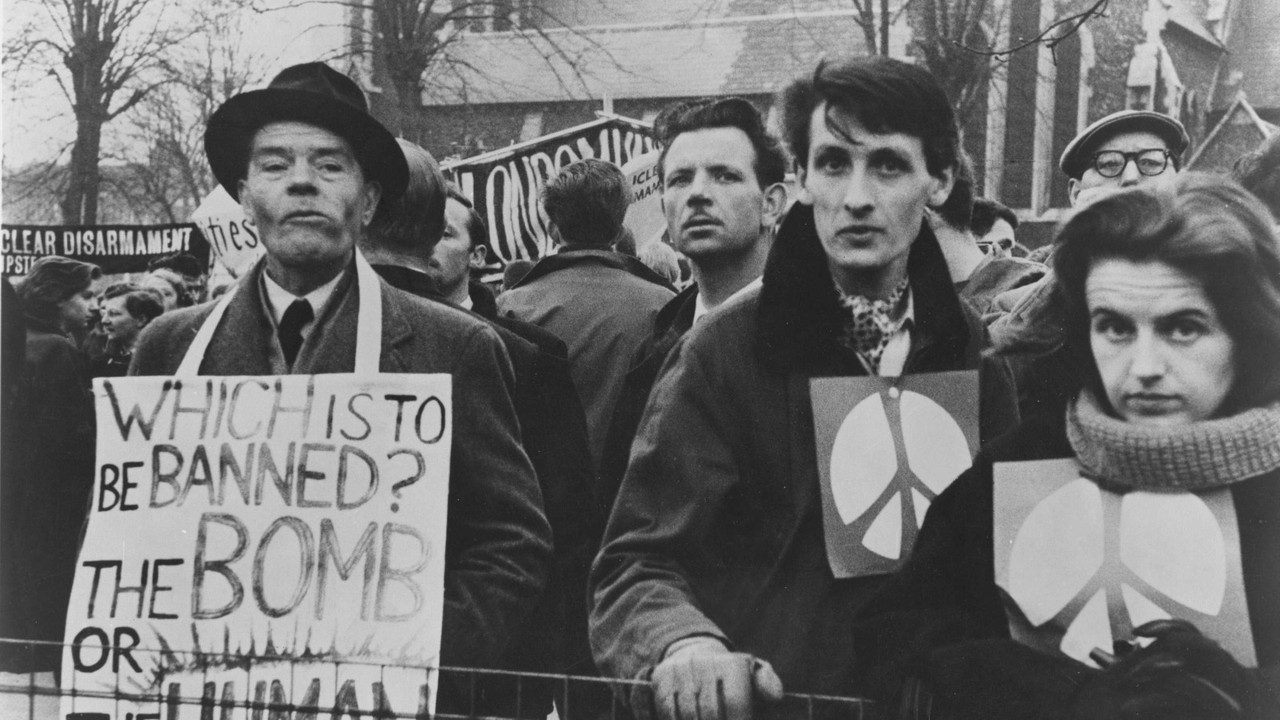British Free Cinema
15 Sep - 04 Oct 2015
BRITISH FREE CINEMA
15 September — 4 October 2015
Film Studio opens with a series of documentaries made in the late 1950s as part of the British Free Cinema movement. The films are an early example of how experimental film can tell the story of everyday experiences, which are a rich and fascinating subject for art and film making.
The British Free Cinema movement was the name given to a series of films produced in London between 1956 and 1959 by Lindsay Anderson, Karel Reisz, Tony Richardson and Lorenza Mazzetti.
The films, often made on very low budgets and with an experimental approach to sound, reinvented British documentary film making and prefigured the better known New Wave movement of the late 1950s and ‘60s.
This event forms part of the Film Studio.
Screening daily:
O Dreamland, 1953, dir. Lindsay Anderson (12 mins)
A portrait of the Margate Amusement Park, Dreamland. The attraction, recently destroyed by fire, has now been rebuilt and opened to the public once more.
Momma Don’t Allow, 1965, dir. Karel Reisz and Tony Richardson (22 mins)
A short documentary detailing a typical Saturday night at a jazz club in Wood Green, London.
Together, 1956, dir. Lorenza Mazzetti assisted by Denis Horne (49 mins)
Poetic film detailing the life and friendship of two deaf-mutes in the East End of London.
Wakefield Express, 1952, dir. Lindsay Anderson (30 mins)
Documentary portrait of the Wakefield Express newspaper.
Nice Time, 1957, dir. Claude Goretta and Alain Tanner (17 mins)
A typical Saturday night in London’s Piccadilly.
The Singing Street, 1952, dir. N. Mclsaac, JTR Richie and R Townsend (30 mins)
Shot over the course of the Easter break, this film follows a day of children’s singing games against an urban back drop of alleys, pavements, bridges and greens.
Every Day Except Christmas, 1957, dir. Lindsay Anderson (39 mins)
An affectionate portrait of the old Covent Garden Market shot of the course of a day’s trading.
15 September — 4 October 2015
Film Studio opens with a series of documentaries made in the late 1950s as part of the British Free Cinema movement. The films are an early example of how experimental film can tell the story of everyday experiences, which are a rich and fascinating subject for art and film making.
The British Free Cinema movement was the name given to a series of films produced in London between 1956 and 1959 by Lindsay Anderson, Karel Reisz, Tony Richardson and Lorenza Mazzetti.
The films, often made on very low budgets and with an experimental approach to sound, reinvented British documentary film making and prefigured the better known New Wave movement of the late 1950s and ‘60s.
This event forms part of the Film Studio.
Screening daily:
O Dreamland, 1953, dir. Lindsay Anderson (12 mins)
A portrait of the Margate Amusement Park, Dreamland. The attraction, recently destroyed by fire, has now been rebuilt and opened to the public once more.
Momma Don’t Allow, 1965, dir. Karel Reisz and Tony Richardson (22 mins)
A short documentary detailing a typical Saturday night at a jazz club in Wood Green, London.
Together, 1956, dir. Lorenza Mazzetti assisted by Denis Horne (49 mins)
Poetic film detailing the life and friendship of two deaf-mutes in the East End of London.
Wakefield Express, 1952, dir. Lindsay Anderson (30 mins)
Documentary portrait of the Wakefield Express newspaper.
Nice Time, 1957, dir. Claude Goretta and Alain Tanner (17 mins)
A typical Saturday night in London’s Piccadilly.
The Singing Street, 1952, dir. N. Mclsaac, JTR Richie and R Townsend (30 mins)
Shot over the course of the Easter break, this film follows a day of children’s singing games against an urban back drop of alleys, pavements, bridges and greens.
Every Day Except Christmas, 1957, dir. Lindsay Anderson (39 mins)
An affectionate portrait of the old Covent Garden Market shot of the course of a day’s trading.

